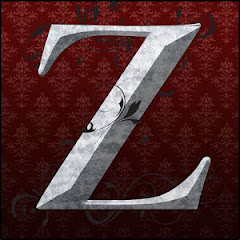From 1976 the British mounted a media offensive to give the impression that the Irish struggle for independence was a criminal gang conspiracy with no popular support other than that given through intimidation and fear – they were made out to be nothing more than gangsters.
The struggle commenced when the British Government withdrew the ‘Special Category Status’ of political prisoners. This status was granted after a previous hunger strike in 1972 at the height of the early troubles. Republicans incarcerated after this time would also be housed in a specially built maximum security prison – the H Blocks.
The first prisoner processed under the new regime was Kieran Nugent. He refused to wear the offered prison uniform and said the prison guards would have to "nail it to my back”. He was forced to be naked with only a thin prison blanket to protect his modesty. Hence came the name of the “blanket protest”.
Later the war of attrition continued and escalated to a point where the prisoners had to smear their faeces on the cell walls and throw urine under the cell doors. As conditions worsened only one tactic remained - Hunger Strike.
An abortive mass hunger strike took place in 1980 when British brinkmanship took the struggle to the point of near death. It was unsuccessful after a last minute “good faith” proposal from the Brits proved ultimately worthless – Perfidious Albion as usual.
A difficult decision was made that the weakness of this tactic would be removed. Hunger Strikers would join at different times and that in the event of deaths they would be replaced with fresh volunteers.
This would be no suicide mission but a tactic to increase pressure through public protest. Existing medical conditions would be monitored and illness would force the stand down of some hunger strikers.
The strike began on 1st of March when Bobby Sands first refused food. He would be joined by Francis Hughes, Raymond McCreesh and Patsy O’Hara. Bobby would be elected to the British Parliament in a by-election during his fast to increase the pressure on the British.
All through March and April tensions rose rapidly. Everyone expected the Brits to play brinkmanship games again. No one believed that they would allow a Member of their Parliament to die in this manner. In the early hours of the morning of the 5th May Bobby died after 66 days on hunger strike. To say the district I lived in exploded in anger would be an understatement.
In spring and summer of that year while the world watched the petty pomp of Charles and Di’s wedding a nightmare death watch ensured for the Irish. The strike was ultimately called off in early October after the prisoners’ families’ repeatedly intervened to ask for medical treatment when they slipped into comas.
By its end 10 hunger strikers had died. 2 were ordered off the protest on medical ground, 5 had been taken off by their families and 6 were still on strike at its end. The entire nation was traumatised by the emotional rollercoaster and the ensuing violence.
Publically the British lauded the ‘defeat’ of the Republican Movement. In private it was an acknowledged disaster for them. Their reputation in the international community lay in tatters. In Ireland there weren’t enough guns to supply the new generation of volunteers.
The flagging armed resistance was rejuvenated. The electoral success of Bobby and his election agent Owen Carron propelled the political party Sinn Fein to the front of the struggle. There was no going back. All this was unforeseen in those days.
30 years ago ordinary men from ordinary backgrounds were forced into a terrible struggle with a merciless state. Despite the public stance of the British the prisoners achieved their 5 simple demands.
- The right not to wear a prison uniform;
- The right not to do prison work;
- The right of free association with other prisoners, and to organise educational and recreational pursuits;
- The right to one visit, one letter and one parcel per week;
- Full restoration of remission lost through the protest.
Why do I bring up these still painful memories at this time? At this very moment another strike is under way. On 1st July prisoners inside Pelican Bay State Prison in California began a rolling hunger strike.
They too have 5 demands and have been reduced to using the most fundamental weapon of the oppressed – their own lives. We can read about this struggle from the Hunger Strike Solidarity and Prison Watch blogs.
The tactic of hunger strike is an old and respected one in many cultures. It is the tactic of last resort and these men have been left with no other option. Fyodor Dostoyevsky is quoted as saying that "The degree of civilization in a society can be judged by entering its prisons."
We shall see how civilised the new Empire truly is. In a society that frequently employs prisoners as slave labour the dimensions of this struggle are deeper than simply ‘law and order’ issues. Human rights for the inmates in the new gulags may be more important than first thought. How many more will join them soon.
My connection to this story is an emotional one. If you can dismiss these men as ‘criminals’ I have a short story from the Irish lesson and remember well that when Christ was crucified it was in the company of two thieves.
The prison chaplain at the time of the hunger strike came to visit Bobby Sands in his cell not long after he had begun his fast. The priest sought to question Bobby on the morals of his hunger strike, Bobby's only response was to quote the bible:
"Greater Love Than This Hath No Man, Than that he Lay Down His Life for his Friend".



